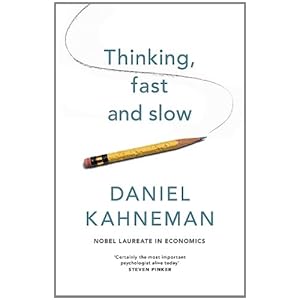Daniel Kahneman, a Nobel prize winner in economics, is one of the founding fathers of what is known as behavioural economics. This branch of economics argues that the rational man of economic theory is like the Tooth Fairy - a fiction. Kahneman argues that when humans make decisions, they are subject to biases, fallacies, effects, illusions, and commonly use heuristics.
Kahneman's work has even affected financial economics. For example, Kahneman and Tversky’s prospect theory implies that people underweight probable outcomes in comparison with certain outcomes. Thus Kahneman-Tversky investors may prefer the certainty of dividends in comparison to merely probable capital gains. Investors may have a preference for dividends for other behavioral reasons such as self-control, regret aversion or mental accounting.
Kahneman has just published a new book, which is an overview of his life's work, where he discusses how human irrationality affects our decision making. You can read a review of his book by clicking here. If you are interested in how psychology affects economics, this should be on your reading list.
Kahneman's work has even affected financial economics. For example, Kahneman and Tversky’s prospect theory implies that people underweight probable outcomes in comparison with certain outcomes. Thus Kahneman-Tversky investors may prefer the certainty of dividends in comparison to merely probable capital gains. Investors may have a preference for dividends for other behavioral reasons such as self-control, regret aversion or mental accounting.
Kahneman has just published a new book, which is an overview of his life's work, where he discusses how human irrationality affects our decision making. You can read a review of his book by clicking here. If you are interested in how psychology affects economics, this should be on your reading list.
